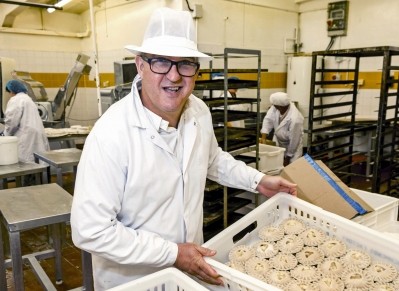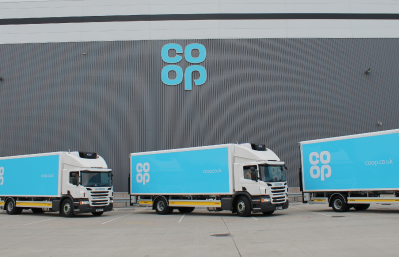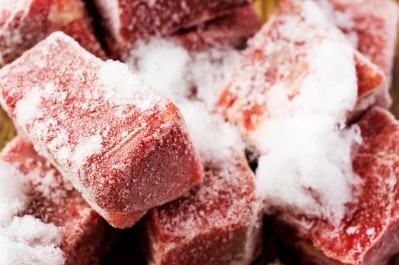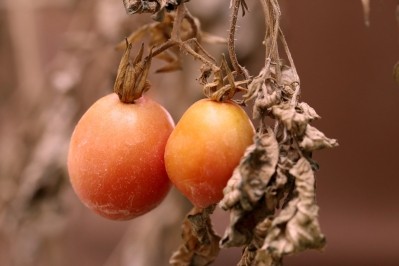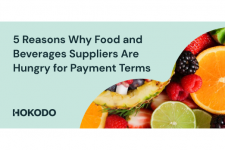Co-op to sell only British fresh meat, as imports soar
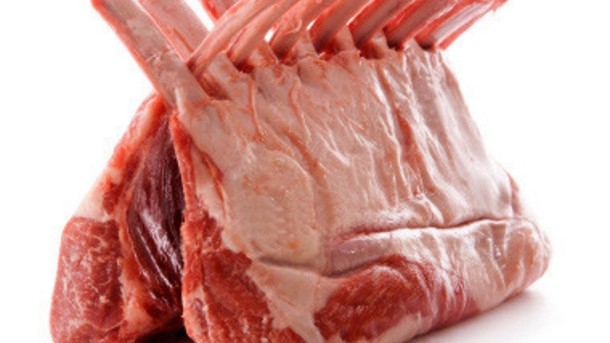
The retailer promised from today (May 2) to halt sales of New Zealand lamb and Danish bacon. It’s retail chief executive Jo Whitfield said: “British consumers will be shocked to see how meat imports have grown while at the same time retailers hang out the bunting and claim to back British farmers.
“Only the Co-op offers 100% British fresh meat all year round and not just in the meat cabinet but also in our sandwiches, our pies and our ready meals.”
The retailer claimed it could source only British fresh meat because it was owned by members not shareholders. That meant it could make long-term investments in what mattered to communities, not what provided the fastest return for shareholders, it claimed.
“I call on other retailers and food providers to do more to help our farmers, particularly as they head towards uncertain times,” said Whitfield.
100% British beef
The pledge meant that the Co-op sourced 100% British beef, chicken, ham, pork, duck and turkey and uses only British meat in all sausages and in its own-label chilled ready meals, pies and sandwiches.
Both the National Farmers Union (NFU) and the National Pig Association (NPA) praised the new commitment.
NFU vice president Guy Smith said: “The Co-op has long supported British farming, but this bold move now puts farming right at the centre of its business – for that we must applaud them.
“Shoppers tell us time and again that they want to see more British food on supermarket shelves. With the latest consumer trends showing an increase in convenient meals, the Co-op has generated an opportunity for the British sheep industry by extending its commitment further than fresh meat, into pies, ready meals and sandwiches.”
‘Pies, ready meals and sandwiches’
NPA chief executive Zoe Davies urged more retailers to follow the Co-op’s example, since about half of the pork consumed in the UK was imported.
“Fluctuating currency markets and imports, which are cheaper because of lower welfare standards, can significantly impact the cost of home produced pork, making it harder for farmers to make a living,” said Davies.
“We call on more retailers and food providers to back British and either source more UK pork or follow the Co-op’s lead and go 100% British.”
NFU Scotland’s (NFUs’) newly-appointed food chain policy manager Lindsey Macdonald said Co-op’s commitment was good news for farmers and consumers alike.
“For a major retailer to deliver 100 per cent British beef, lamb, pork, bacon, ham, chicken, turkey and duck to its customers sends a clear message to other supermarkets on what is achievable when it comes to genuinely supporting the nation’s farmers and crofters,” said Macdonald. “For that commitment to also extend into its own-label range of processed foods like pies and sausages as well as chilled ready meals and sandwiches is an unparalleled level of support.”
The union said it wanted to explore with the retailer the scope to stock more Scottish produce.
Meanwhile, UK meat imports have soared in the past 20 years, according to Co-op research. See more details in the box below.
UK meat imports double in 20 years: Co-op research
Meat imports into the UK have doubled over the past 20 years, reveals new research by the Co-op. Since 1996, meat imports from the EU and other countries have soared from £3bn to £6.2bn. More than £5bn worth of meat is supplied by EU countries, while Asia and Oceania countries account for £804M worth of imports, followed by Latin America at £345M.
Asian and Oceanic imports have seen their exports to the UK almost treble from £304M in 1996. The biggest imports from that region come from Thailand (£423M) and New Zealand (£291M).
Meanwhile, Ireland is the biggest beneficiary of EU meat trade with the UK, with £1.45bn of meat arriving in the UK from across the Irish Sea.
